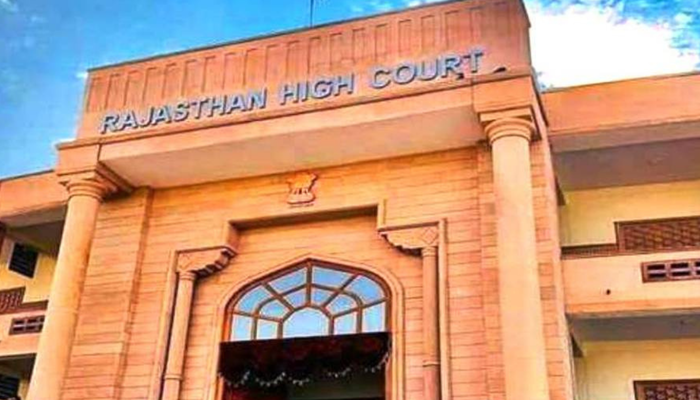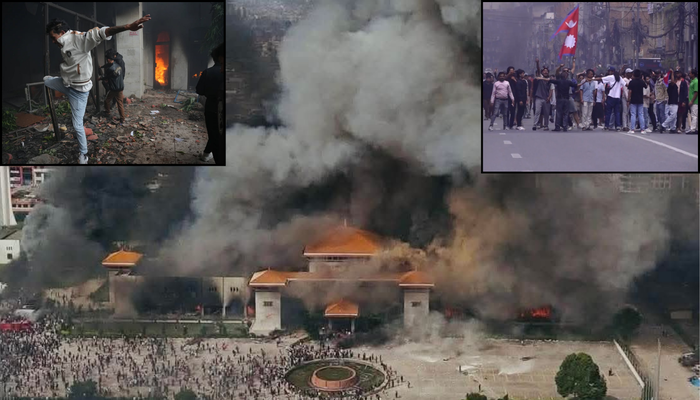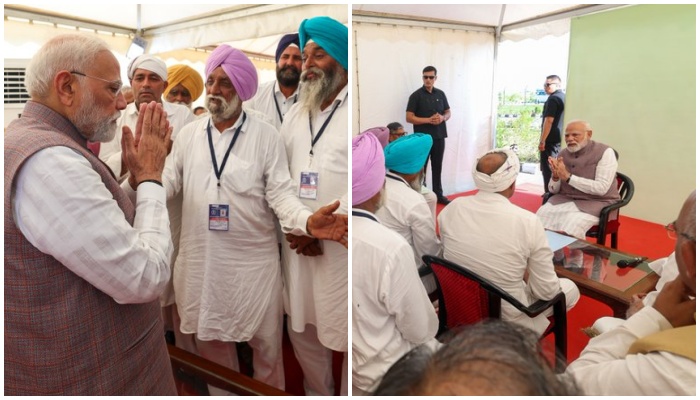Rajasthan High Court upholds order cancelling the license of meat shops near Hindu temple, dismisses claim that the place of worship was ‘private’
The Rajasthan High Court recently dismissed petitions challenging the order cancelling the license of meat shops situated within a 50-metre radius of a place of worship. The petitions were filed against the order of the District Collector, Jaipur, passed on February 17, 2025, which cancelled the license of meat shops lying in the vicinity of a temple. The said order invoked Clause 4 of a Standard of Procedure (SoP), which was issued under Section 269 read with Section 340 of the Rajasthan Municipalities Act, 2009. Every temple is a public property unless proved otherwise: HC The petitioners contended that the cancellation of the license was unwarranted as the temple in question was merely a private temple and not a public temple registered with the Devasthan Department. Refusing to accept the argument presented by the petitioners, a single bench of Justice Anoop Kumnar Dhand said that every temple is a public property unless proved otherwise. The judge noted that the temple was located in an open area and was accessible to all. “If a temple is situated in an open area and is accessible to the public, it will be construed as a public temple. Public temples are considered to be dedicated to the public at large or a section thereof for worship,” Justice Dhand said. “This Court finds no substance in the arguments of the counsel for the petitioner that the temple situated within a 50-meter radius of the petitioners’ meat shops is not a public temple,” the Judge noted in its order dated September 1, 2025. Describing a temple, the judge said, “A temple is a place of worship dedicated to a specific deity or deities, where individuals or groups perform their religious activities, prayers or ceremonies. Temple means a place, by whatever designation known, used for public religious worship where anyone can worship, and the same is accessible to the public at large.” “These petitions do not contain any merit or substance which warrants any interference of this Court. These writ petitions are found to be devoid of merit and the same are hereby rejected. Stay applications and all pending application(s), if any, also stand dismissed,” the court said in the dismissal order.



The Rajasthan High Court recently dismissed petitions challenging the order cancelling the license of meat shops situated within a 50-metre radius of a place of worship.
The petitions were filed against the order of the District Collector, Jaipur, passed on February 17, 2025, which cancelled the license of meat shops lying in the vicinity of a temple. The said order invoked Clause 4 of a Standard of Procedure (SoP), which was issued under Section 269 read with Section 340 of the Rajasthan Municipalities Act, 2009.
Every temple is a public property unless proved otherwise: HC
The petitioners contended that the cancellation of the license was unwarranted as the temple in question was merely a private temple and not a public temple registered with the Devasthan Department.
Refusing to accept the argument presented by the petitioners, a single bench of Justice Anoop Kumnar Dhand said that every temple is a public property unless proved otherwise. The judge noted that the temple was located in an open area and was accessible to all.
“If a temple is situated in an open area and is accessible to the public, it will be construed as a public temple. Public temples are considered to be dedicated to the public at large or a section thereof for worship,” Justice Dhand said.
“This Court finds no substance in the arguments of the counsel for the petitioner that the temple situated within a 50-meter radius of the petitioners’ meat shops is not a public temple,” the Judge noted in its order dated September 1, 2025.
Describing a temple, the judge said, “A temple is a place of worship dedicated to a specific deity or deities, where individuals or groups perform their religious activities, prayers or ceremonies. Temple means a place, by whatever designation known, used for public religious worship where anyone can worship, and the same is accessible to the public at large.”
“These petitions do not contain any merit or substance which warrants any interference of this Court. These writ petitions are found to be devoid of merit and the same are hereby rejected. Stay applications and all pending application(s), if any, also stand dismissed,” the court said in the dismissal order.
























































































































